


Ending Isolation and Building a Unified Team Across Distributed Sites
As a workforce becomes increasingly distributed, it is more important than ever to facilitate, ensure, and capture collaboration in order to share knowledge effectively and efficiently; effective communication is essential to achieving business goals. As mobile...
Avoiding Single Points of Failure Through Knowledge Sharing
Knowledge management is all about making sure that all components of an organization, project, or task can work together regardless of staff rotation. We capture, store, share, analyze, and share some more precisely because who’s coming or going will change. Sadia...
From Telewho to Teleyou: Engaging as a Teleworker at MITRE
Brett Profitt’s observation that “MITRE sets teleworkers up for success, but teleworkers must endeavor to be successful” resonated. No matter how many business process tools an organization makes available, staff have to use them to good end. And he does, mentioning...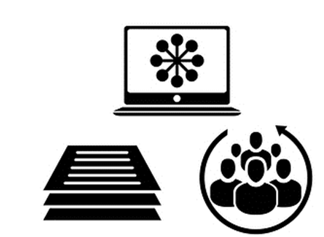
For scientists and researchers: Rich resources at the ready
MITRE’s knowledge-sharing culture incorporates many kinds of resources, from human, to traditional paper, to digital. For researchers like Melissa Dolph, the wealth of resources enables her to perform on behalf of customers and to network, both of which enrich her...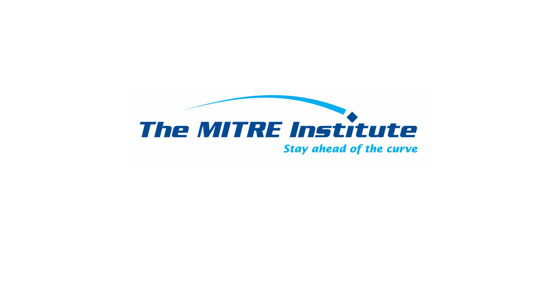
Do you MOOC? Could you? Would you gMOOC?
The phrase corporate training may sound like, well, school, but in the hands of Lara Van Nostrand, it is anything but. Her team sets up collaborative learning experiences that take advantage of online classes held elsewhere (e.g., Coursera), interactive survey...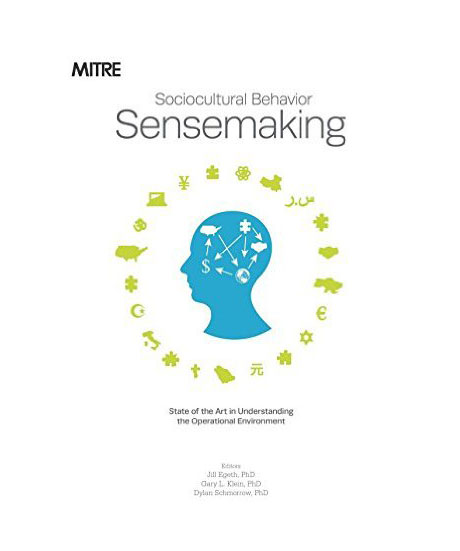
Recent MITRE publication, Sociocultural Behavior Sensemaking: State of the Art in Understanding the Operational Environment, Demonstrates Value of Collaborative Knowledge Management Practices
Recent MITRE publication, Sociocultural Behavior Sensemaking: State of the Art in Understanding the Operational Environment, Demonstrates Value of Collaborative Knowledge Management Practices Dr. David Foster, a social behavioral scientist at MITRE, faced a challenge...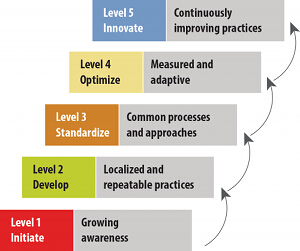
When a Lack of Heroics Best Serves Veterans
A good friend and mentor reminds me regularly that knowledge management is a journey, not a destination. Which makes maturity models the boon companion of the KM discipline. This post eyes the prize through the lens of a new volunteer effort that helps military...MITRE’s Knowledge Driven Enterprise Strategy: Syncing People, Processes, and Tools for Enhanced Business Outcomes
Knowledge-driven enterprise refers to capturing organizational knowledge in the normal flow of people’s work, and then making it easy for staff to use what they find on behalf of the company or external partners and sponsors. Donna Cuomo, the architect of the KDE...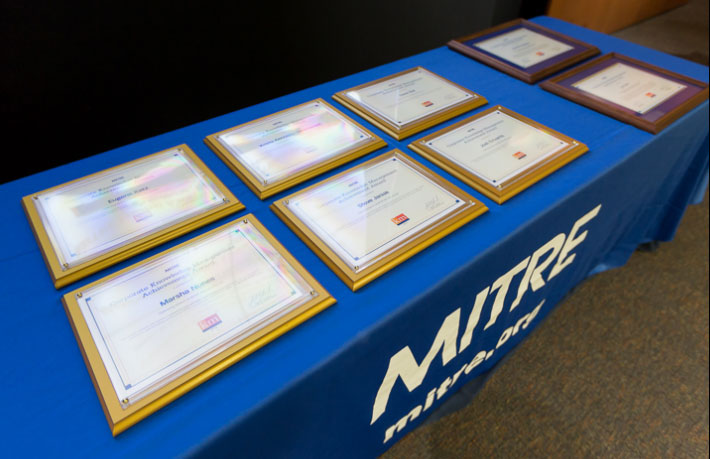
MITRE’s Knowledge Management Award Program
Awards! Who doesn’t like to be recognized for good work? Yet Knowledge Management Awards programs are not ubiquitous. Marcie Zaharee discusses MITRE’s original awards program and its results. In 2016, MITRE will launch a new program, as the company explores the role...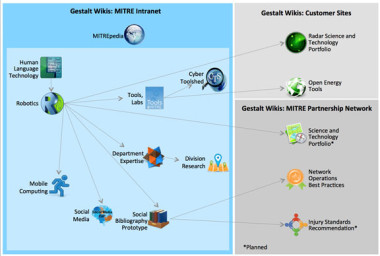
Gestalt Wikis at MITRE: Origins
Gestalt Wikis at MITRE: Origins
This blog post is the first of four in a series about Gestalt Wikis at MITRE. MITRE began using wikis on the corporate intranet in 2005 with the volunteer grassroots creation of MITREpedia. MITREpedia uses open source MediaWiki[1] as its underlying wiki software. The objective as stated in its Main Page was to capture information about MITRE “people, projects, organizations, customers, technology and more.”[2] In a recent conversation with its founder, Harry Sleeper, the motivation behind MITREpedia was elaborated as to provide a collaborative environment where staff could author linked narratives of well-formed, detailed knowledge about their work.

Big Data in Knowledge Management
I believe that knowledge management as a discipline developed because technology enabled the deluge of data we began experiencing about 20 years ago. The ways that we used to organize and share our information were no longer adequate to the task and we needed something new. I’ve spent the last five or six years focusing on data, more specifically on helping organizations treat their data as a strategic asset that requires the same stewardship afforded any other valuable resource within the organization.
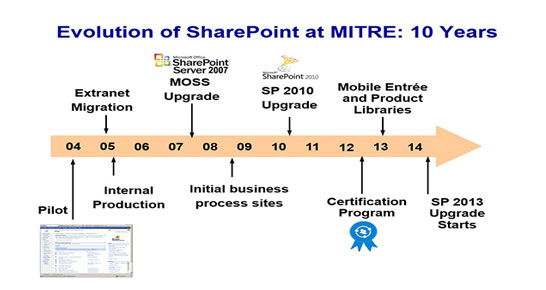
10 Years of SharePoint: Growth and Evolution of a Collaborative Platform
MITRE started using SharePoint with a small pilot in 2003 and now has a robust set of several thousand intranet and extranet sites based on SharePoint 2010. It is used as a content management platform, a collaborative team platform (for projects, organizations and CoPs), for work process capture and scheduling, employee engagement, and blogging. It has become critical to MITRE’s business processes, resulting in an evolution of its capabilities over the years.

Communicating the Value of IT Rollouts
Each of our IT service managers is responsible for operating their service, measuring its impact, managing its cost, and evolving the service over time. How the service evolves, or its “roadmap”, is based on changing user requirements, product evolution, technology changes, cost pressures, and industry trends. The service manager must stay informed and continuously question their assumptions as they develop their roadmaps. But almost as important as the ability to develop their roadmap is the need to communicate their roadmap.
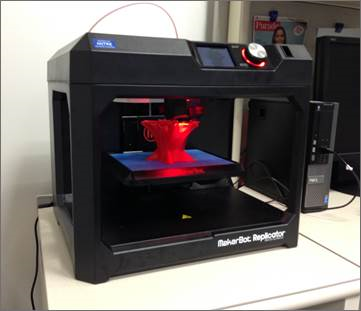
The InfoServices Evolution
MITRE’s InfoCenter does not have books, we have 3D printers. Puzzled? I will tell you our story.
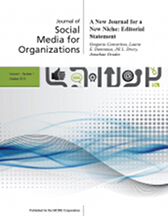
New Online Journal: “Social Media for Organizations”
With the popularity of social media in purely social contexts, I’ve been fascinated by the implications for using these tools for work-related purposes. In recent years, organizations of all types—whether they are industrial, academic, government, or non-profit—are increasingly turning to social media tools such as wikis, blogs, microblogs, and social networking for internal use. By doing so, they hope to enhance collaboration, streamline business processes, and improve relationships.
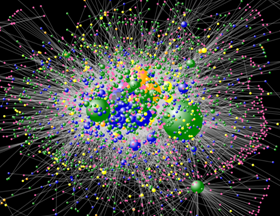
Enterprise Social, Five Years in
In 2009, “social” was still a buzzword, Facebook was years away from an IPO, and Instagram has not been invented. Yet a groundswell was beginning – people used to the ease of sharing in their online social networks came to their offices, only to find that exchanging information was difficult at best. Communications flowed from the top of the organizational hierarchy down, flooding the already overflowing email inboxes – while cross-organizational collaboration was severely impeded.
